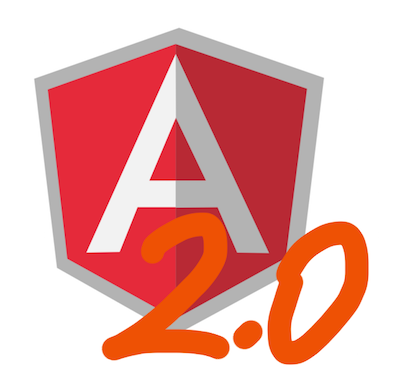Angular 2

Abhishek Agashe




Components
import {Component} from 'angular2/angular2';
//Metadata annotation
@Component({
selector: 'app',
template: `
<div>
<h1>{{greetings}} everybody </h1>
<!-- Welcome everybody --!>
<p class='red' bold> Happy holidays !!! </p>
</div>
`,
styles: [`
.red: {color: red}
`]
})
export class App {
greetings: string;
constructor() {
this.greetings: "Welcome";
}
onInit() {
//Do something.
}
}Lifecycle hooks
- onInit
- afterViewInit
- onDestroy
- onChanges
- doCheck
- afterContentInit
- afterViewChecked
import {Component} from 'angular2/angular2';
import {EmployeeList} from './employeelist';
@Component({
selector: 'factory',
directives: [EmployeeList],
template:
`<div>
<h1>Factory component</h1>
<employeelist [startwith]='filter'>
</employeelist>
</div>`
})
export class Factory {
filter: string = '';
constructor() {
this.filter = 'C';
}
}import {Component, Input, NgFor}
from 'angular2/angular2';
@Component({
selector: 'employeelist',
directives: [NgFor],
template:
`<div>
<ul>
<li *ng-for="#employee of employeeList">
{{employee}}
</li>
</ul>
</div>`
})
export class EmployeeList {
@Input() startwith: string;
employeeList: string[];
myEmployees: string[] = ['C-3PO','Darth Vader',
'Han Solo','Chewbacca',
'Yoda','Count Dooku'];
constructor() {
}
onInit() {
this.employeeList = this.myEmployees.filter(
(employee)=>{
return employee.startsWith(this.startwith);
});
}
}Data binding between components
Factory
Employee List
<div>
<h1>App component</h1>
<ul>
<li>C-3PO</li>
<li>Chewbacca</li>
<li>Count Dooku</li>
<ul>
</div>@Component({
selector: 'eventemitter',
template:
`<div>
<h1>Event Emitter Component</h1>
<button (click)="clicker($event)">
Click me
</button>
</div>`
})
export class App {
@Output clicked: EventEmitter
= new EventEmitter();
clicker(event) {
this.clicked.next(event.target.value);
}
}Events / Custom Events
@Component({
selector: 'app',
directives: [eventemitter]
template:
`<div>
<h1>My component</h1>
<eventemitter (clicked)="handleClick($event)">
</eventemitter>
</div>`
})
export class App {
handleclick(value) {
console.log(value);
}
}Parent component
Child component
View Encapsulation
import {Component, ViewEncapsulation}
from 'angular2/angular2';
@component({
selector: 'app',
template: `<p class="green">`,
style: [`
.green { color: green}
`],
encapsulation: 'ViewEncapsulation.Native'
// .Emulated .None
})
export class App {
constructor() {}
}-
ViewEncapsulation.Emulated
- angular2 view encapsulation enabled // default
-
ViewEncapsulation.None
- No view encapsulation
-
ViewEncapsulation.Native
- view encapsulation using shadow dom
Directives
import {Directive, ElementRef} from 'angular2/angular2';
@Directive({
selector: '[bold]'
})
export class BoldDirective {
constructor(el: ElementRef) {
el.nativeElement.style.fontWeight = 'bold';
}
}<div class="myapp">
<p bold> Hello world </p>
</div>Dependency Injection
class Vehicle {
constructor() {
var engine = new Engine();
engine.build();
}
}
Constructor injection
class Vehicle {
constructor(engine: Engine) {
engine.build();
}
}
class Engine {
constructor(nutsNBolts: NutsNBolts) {
nutsNBolts.fit();
}
}
class NutsNBolts {
constructor() {
.....
}
fit() {
}
}
new Vehicle(new Engine(new NutsNBolts()));
// Parent component
import {Component} from 'angular2/angular2';
import {Bootstrap} from 'angular2/angular2';
import {UserService} from './userservice.js';
@Component({ template: `<div> My App </div>` ... })
export class App {
constructor() {
}
}
Bootstrap(App,[UserService]); //UserService available in entire app.
//Child component
import {Component} from 'angular2/angular2';
import {UserService} from './userservice.js';
...
@Component({ ... })
export class SomeComponent {
constructor(user: UserService) { //Singleton
user.dosomething();
}
}Global Injection
By default all objects injected are singleton
// parent.ts -- parent component
import {RoutineService} from './componentservice';
import {Child} from './child';
@Component({
......
template: `<div>Parent component <child></child> </div>`,
directives: [Child]
providers: [RoutineService]
// viewProviders: [RoutineService]
})
export class App {
constructor(routineservice: RoutineService) {
routineservice.addRoutine(["eat", "sleep", "code"]);
}
}//child.ts -- child component
import {RoutineService} from './routineservice.js';
@Component({
selector: 'child',
template `<p> I am child component </p>`
})
export class SomeComponent {
constructor(routineservice: RoutineService) { //Singleton
routineservice.deleteRoutine(["sleep"]);
}
}Component level injection
PIPES
<!-- Date PIPE --!>
<p>{{date | date:'mediumDate'}}</p>
<!-- Sep 1, 2015 --!>
<p>{{date | date:'yMMMMd'}}</p>
<!-- September 1, 2015 --!>
<p>{{date | date:'shortTime'}}</p>
<!-- 3:50 pm --!>
<!-- CURRENCY PIPE --!>
<p>{{43 | currency: 'USD' : true}}</p>
<!-- $43 --!>
<p>{{43 | currency: 'USD' : true : '2.2'}} </p>
<!--$43.00 --!>
<p>{{43 | currency: 'USD' : true : '3.3'}} </p>
<!--$043.000 --!>Angular2 inbuilt pipes
- currency
- date
- uppercase
- json
- limitTo
- lowercase
- orderBy
- filter
- async
- decimal
- percent
- number
Async Pipes
@Component({
template:
`
<div>
<h1>My Component </h1>
This component is ... {{lazydata | async}}
</div>
`
});
export class App{
lazyData: Promise<string> = null;
constructor() {
this.lazyData = new Promise<string>((resolve: any, reject: any) => {
setTimeout(()=> resolve("lazy"), 3000);
})
}
} Async pipe also works with Observables.
Async calls

- Http calls return observables.
- Observable is of a love child of Promise and collection/set
- Observable is alias to RxJs Observable
- Rxjs is reactive programming libraray
import {Http} from 'angular2/angular2';
import {Earthquake} from '../models/earthquake';
class EarthquakeService() {
.
.
.
getEarthquakeData(callback:(data: any[]) => void) {
this.http.get('http://earthquake-report.com/feeds/recent-eq?json')
.map((response: any) => {
return response.json();
})
.map((jsonData: any[]) => {
jsonData.forEach((item) => {
this.earthquakeData.push(new Earthquake(item));
});
return this.earthquakeData;
})
.subscribe(
(data:any) => callback(this.earthquakeData), //OnNext
(err:any) => console.log(err), //OnError
() => console.log("call completed") //OnComplete
);
}
}
}References
- http://blog.thoughtram.io
- http://angularconnect.com/sessions
- https://angular.io
- https://disqus.com/home/forum/victorsavkinsblog
- https://github.com/abhishek-agashe/angular2-playground
?
deck
By abhishek_agashe
deck
- 1,078